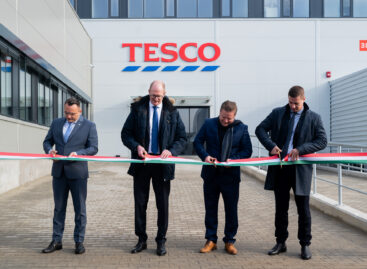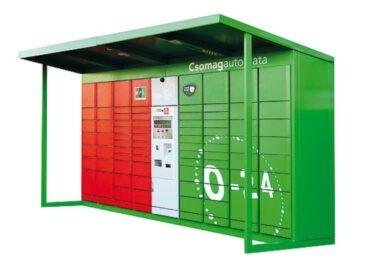Tesco announces new Group-wide net zero target of 2035 for its own operations
- Retailer also sets out Group-wide commitment to cut emissions from its supply chain and products to zero by 2050
- New ambition is in line with UN aspiration of keeping global warming below 1.5C
- Tesco will set out plans on how to cut emissions from all key emission sources
- Call to action to suppliers to work with Tesco to achieve this target
Tesco has today strengthened its ambition to tackle climate change by announcing a new Group-wide net zero target of 2035 for its own operations, including Ireland. The retailer has also set out a commitment to cut emissions including those generated by the products it sells and across its supply chains to zero by 2050, in line with the UN’s aspiration of keeping global warming below 1.5C.
Often referred to as Scope 3 emissions, Tesco’s 2050 commitment will cover all emissions generated across its entire value chain. This includes the sourcing of raw materials and food production, where emissions are generated through agriculture and manufacturing; in the use of Tesco products, including food waste; and in peoples’ dietary choices, where an increase to more plant-based food is required to cut emissions.
Emissions from Tesco’s products and supply chain make up more than 90% of the retailer’s total emissions footprint. To date, 100 of Tesco’s largest international suppliers have already reduced manufacturing emissions by 20%. The retailer has today written to all of its suppliers to ask for their support in the transition to a low carbon economy.
To date, Tesco Ireland has made progress on reducing emissions in its own operations by reducing its electricity consumption by 25%, sourcing all its electricity from renewable sources as well as substantial changes to lighting, heating, ventilation, and refrigeration in its store estate.
Over the next 12 months, Tesco will set out a clear plan for achieving its new targets, including detailed decarbonisation roadmaps for some of its key emissions areas, such as product manufacturing.
Activities include:
- Supporting all suppliers to establish a net zero ambition and set science-based targets
- Accelerating operational decarbonisation across key emissions hotspots such as refrigeration, heating and transport
- Trialling innovations with suppliers to reduce emissions, including the use of low-carbon fertiliser and alternative animal feed such as insect meal
- Cutting emissions associated with customers’ diets, including increasing the sales of plant-based products
- Advocating for collaborative industry action and support from Government
Welcoming the announcement, Minister for the Environment, Climate and Communications, Eamon Ryan TD, said: “I welcome this commitment by Tesco in advance of the COP26 summit on climate and urge them and their suppliers to follow through. These actions will be beneficial in themselves and show leadership for the wider business community. When the Climate Act was signed into law this summer, we committed ourselves to achieving the transition to a climate resilient, biodiversity rich, environmentally sustainable and climate neutral economy no later than 2050. Consumers want to do the right thing for the planet, and they need businesses to step up to the mark and make that possible. Actions such as this will also support our long-term competitiveness and create new jobs in the green economy.”
Tesco Group CEO, Ken Murphy said: “In this critical year for tackling climate change, it’s right that we set out this ambitious commitment to cut emission across our entire value chain. We don’t yet have all the answers and we’ll need support from our suppliers and wider society to meet our targets, but it’s vital we take action now.
“Building on the good progress we’ve made in cutting emissions in our own operations, we’re also setting out a Group-wide net zero target of 2035. These new commitments will bring an unprecedented level of transparency to our emissions footprint and will allow us to identify and tackle those areas where urgent transformational change is needed.”
Related news
8 million bottles of spirits and 225 cash machines await customers
Tesco has prepared 8 million bottles and cans of alcoholic…
Read more >Tesco’s new 100,000 square meter logistics center in Hungary has been opened
On November 27, CTP Hungary ceremoniously handed over Tesco Global…
Read more >Biodiversity Conference: Droughts causing damage of 300 billion euros per year on Earth
Global droughts are causing an estimated €300 billion (HUF 124…
Read more >Related news
The Joy of Giving! – SPAR stores collect non-perishable food for people in need
The Hungarian Maltese Charity Service and SPAR Hungary have launched…
Read more >Price increase at Magyar Posta: this is how much the most common postal services will cost in 2025
Magyar Posta’s goal remains to provide its services efficiently and…
Read more >Nébih: LPP Hungary Kft. has recalled a ceramic bowl with a reindeer motif
The SINSAY brand ceramic bowl with a reindeer motif is…
Read more >








